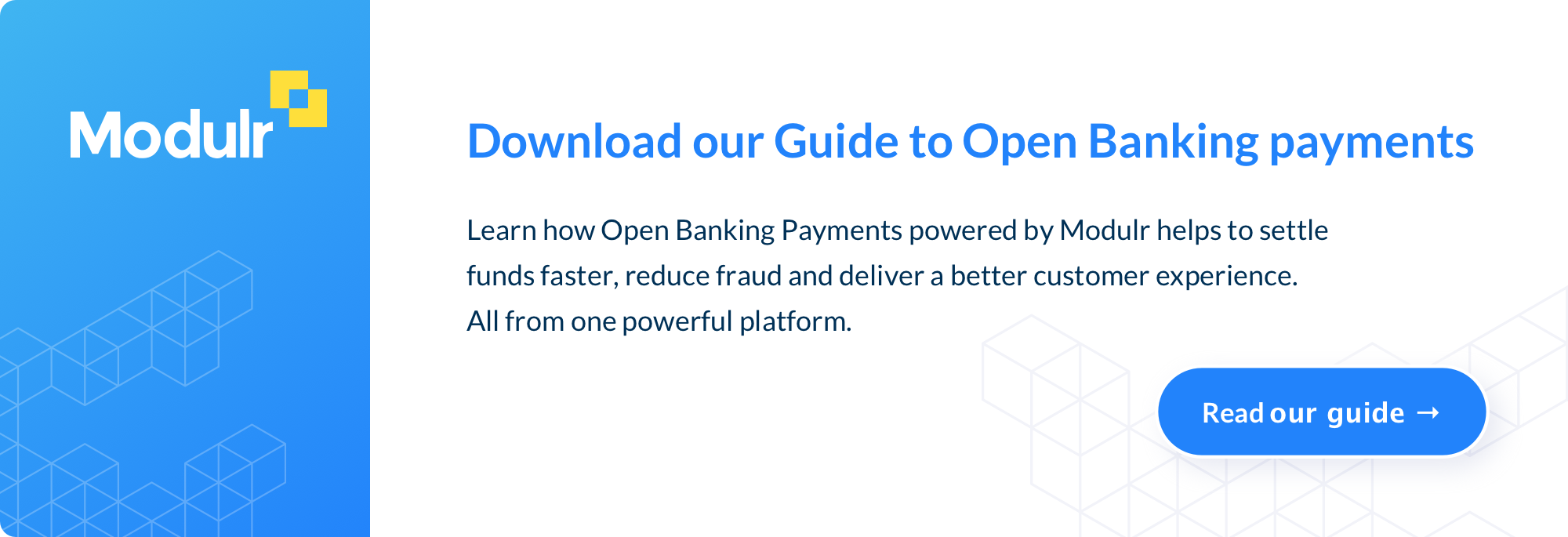Open Banking legislation was introduced with the express purpose of encouraging the development of new FinTechs, bringing in more disruptive players to the financial services industry and providing customers with more choice.
So, what exactly is Open Banking?
Open Banking requires financial institutions to allow their customers (which they request) to digitally share their transaction data with third parties. This is made possible via secure APIs (Application Programming Interface), which enables one company's software to have access to another's.
While the benefits of Open Banking haven't yet been fully realised by many businesses and customers, the service does have revolutionary potential. Not only will Open Banking give customers more power over their finances, but it will also allow businesses to cut down on burdensome administration processes.
How Open Banking Payments Work
Traditional methods of paying for goods and services include debit or credit card payments, and bank transfers. But, card payments can be slow and charge a percentage of the transaction value, leading to lost revenue for the charging business. Likewise, acquiring card information begins a long settlement process that takes up to 3 days for the funds to arrive in the charging business' account. Bank transfers can also be set up incorrectly by customers manually entering their details, causing unnecessary need for additional customer support and chasing. And, in the digital age, clunky and inefficient experiences like this are barely tolerated by business and consumer customers alike.
That's where digitally native Open Banking payments comes in.
Here's an example of how Open Banking payments work from a consumer’s perspective when buying goods from an eCommerce store:
- The customer selects 'pay by bank' at the merchant's checkout.
- The merchant calls an API to get a list of banks for the customer to select from.
- Once the customer has selected their bank, the customer is redirected to their bank's web page or app to authorise the payment using their usual details.
- This is then verified and the customer is redirected back to the merchant's completion page. Funds are immediately sent via Faster Payments.
The benefits of using Open Banking Payments
However, the prime benefits of Open Banking payments are enjoyed by businesses which can, in turn, enable them to increase revenue in the long run. Here are just some of the reasons why businesses and consumers may choose to take advantage of Open Banking:
- Businesses: When customers use a card to make a payment, complex processes take place behind the scenes. There's a time and a place for card payments in our digital world, but this is no longer one of them. Every step incurs fees and requires several parties to be involved. Open Banking, on the other hand, is far more streamlined and cost-effective as it cuts out the middlemen. Plus, funds arrive in an instant, making payment reconciliation and processing refunds easier.
- Customers: Open Banking payments create a simple, three-step process for customers. With no need to manually enter their payment card details, sort code and account number, fraud is dramatically reduced. Not only is this appealing for a consumer, it can also help to build customer loyalty and reduce abandonment/drop-off rates at checkout.
It's clear that Open Banking has been natively built to serve the digital customer experience of the future, with over 2.5 million UK consumers and businesses now using Open Banking-enabled products to manage their finances, access credit and make payments. The number of accounts is only set to grow as FinTechs develop new and exciting products and capabilities; providing consumers with more choice and delivering operational benefits for businesses.
Companies that are quick to adopt this new service and embrace change will likely find that they have a competitive advantage over those that are yet to do so.


